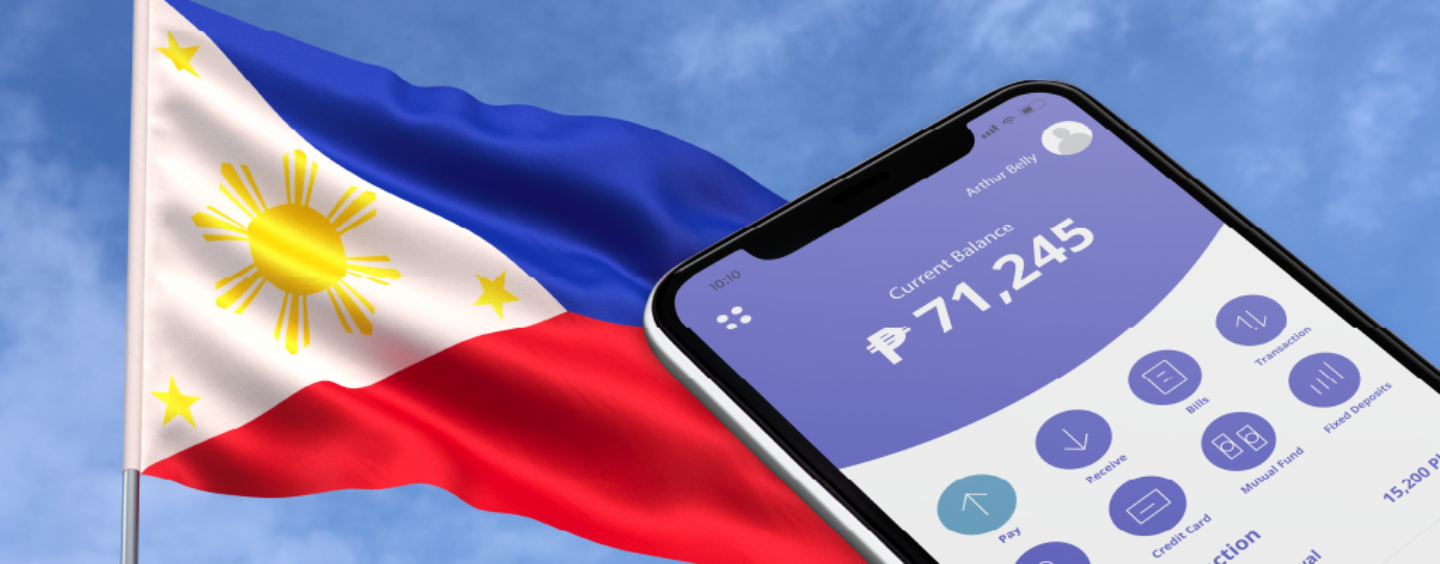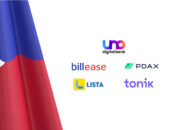
All The Key Things That Happened in Philippines’ Fintech Scene in Q1 2023
by Fintech News Philippines March 31, 20232023 has so far a successful beginning of the year for the Philippines’ fintech industry. The first quarter was marked with a number of announcements from regulators and government agencies focusing on increasing the usage of digital financial services, new product launches, and exciting initiatives aimed to boosting fintech innovation.
With Q1 2023 coming to a close, we’ll look today at some of the biggest developments occurring in the Philippines’ fintech industry during the first quarter of the year.
Central bank sets deadline for national QR code standard adoption

The Bangko Sentral ng Pilipinas (BSP) has given all supervised financial institutions until July 01, 2023 to fully adopt the National QR Code Standard (QR Ph) and disable any other payment QR code still running.
Payment service providers, including those participating in the InstaPay automated clearing house, are required to submit the status of their compliance with the QR Ph standard within 30 days from the date of the memorandum. Additionally, they will need to provide appropriate product training and guidance on the features of QR PH to their employees, including store cashiers and managers.
Launched in 2019, the national QR code standard aims to prevent fragmentation in the QR code payment space and enable interoperability. It eliminates the need for merchants and customers to maintain several different services, hopefully thus boosting the use of mobile payments.
BSP amends guidelines on electronic money
BSP amended in February the guidelines on electronic money (e-money) and the operations of e-money issuers (EMIs), setting out higher liquidity and capital requirements for EMIs to better protect consumers, the central bank said in a statement.
EMIs with monthly outstanding e-money balance of at least PHP 100 million (US$1.8 million) are required to maintain liquid assets in trust accounts equivalent to at least 50% of their outstanding e-money balance.
EMIs with large-scale operations, or with a 12-month average value of aggregated inflow and outflow transactions equal to or greater than PHP 25.0 billion (US$460 million), are required to maintain minimum capital of PHP 200 million (US$3.7 million).
EMIs have one year to comply to the revised regulations, the regulator said on February 07.
Central bank kickstarts open finance standards consultation
BSP is inviting supervised financial institutions and third-party providers to take part in the Philippines Open Finance Pilot, a collaborative effort focusing on exploring the use of application programing interface (API) technologies in the delivery of financial products and services, as well as on the development of technical and operational standards.
The central bank previously unveiled plans to pilot test at least three use cases for its open finance framework such as account opening, direct debit payments and fund transfers, according to a Manila Bulletin report.
The Open Finance Oversight Committee Transition Group, the interim governing body in charge of developing the standards and frameworks, is currently conducting preparatory activities for this year and should come up with areas of cooperation.
SEC taps law university for fintech regulations
The Philippines’ Securities and Exchange Commission (SEC) is teaming up with the University of the Philippines Law Center (UPLC) to develop fintech regulations in the country.
The two parties signed an agreement in February for the conduct of joint research projects, capacity building and policy analysis, as well as resource and information sharing. The partnership will also see the UPL help the regulator in the creation of a legal and regulatory framework to initially address issues surrounding cryptocurrencies, before focusing on other fintech products.
Separately, the SEC is also drafting rules for digital asset exchanges focusing on ensuring that the exchange of these assets meet global standards on investor protection, market integrity, and transparency.
Philippines joins BIS-led instant cross-border payment project
Project Nexus, an initiative led by the Bank for International Settlements (BIS), announced on March 23 that it had successfully linked the three instant payment systems of the Eurosystem, Malaysia and Singapore, allowing payments to be sent across the three using only mobile phone numbers.
Project Nexus is now entering its next phase where the central banks of the Philippines, Indonesia, Malaysia, Singapore and Thailand will work toward connecting their domestic instant payment systems through the system, BIS said in a statement.
Philippines emerges as popular fintech outsourcing destination
The Philippines is becoming a popular destination for fintech support outsourcing, owing to its large pool of English-speaking, highly educated workers, in-depth understanding of the fintech industry, and cost-effectiveness.
“The Philippines has a unique combination of people, processes, and high-tech that make it an ideal destination for fintech support outsourcing,” Ralf Ellspermann, CEO of PITON-Global and one of the country’s leading experts on fintech outsourcing, told the Manila Bulletin earlier this month.
“The country’s skilled and experienced workforce, sophisticated technology, and cost-effectiveness relative to many other countries make it the perfect provider of high-quality and efficient support to fintech companies.”
Companies such as Binance, Stripe and Wise have recognized these benefits and are outsourcing various support functions to the Philippines, Ellspermann noted, adding that customer support and back-office operations such as data entry, account reconciliation, and compliance monitoring, were among the most commonly outsourced aspects of the fintech industry.
14 fintech companies score payment licenses
Since the beginning of 2023, BSP has issued payment licenses to 14 companies, data from the central bank show.
These companies include Brankas, an open finance platform serving companies offering e-wallets, online shopping checkout, lending services, insurance, and wealth management; HitPay, a Singapore-based payment platform for small and medium-sized enterprises (SMEs); and Salarium Payments Corporation, the operator of an end-to-end payroll solution for companies.
New fintech products launch
2023 has seen a number of new fintech products being launched in the Philippines. Salmon, a new fintech startup, went live in January with its first product offering, a point-of-sale (POS) lending service.
The new service allows Filipinos, including underbanked and unbanked customers, to enjoy the convenience and benefits of shopping for a variety of home products while deferring payment for their purchases over several monthly installments. Merchant partners also have access to a dedicated portal to manage and monitor their sales. Salmon says it has partnered with over 30 merchants in the Philippines.
Smart Communications, a leading wireless provider in the Philippines, is partnering up with Silicon Valley-based fintech startup Plentina to provide subscribers to access buy now, pay later (BNPL) arrangements to pay for their mobile loads. The two companies hope to extend the micro-loan solutions to other segments and products.
Finally, in Latvia, online lending marketplace Sun Finance expanded earlier this year into the Filipino market. The launch represents the nineth country Sun Finance is now available in, joining locations including Mexico and Vietnam.
Sun Finance, which clams more than 11 million registered customers, is one of the fastest-growing companies in Europe, according to the Financial Times’ 2022 annual ranking of the region’s fastest-growing companies.
GCash ramps up digital lending efforts

GCash, the Philippines’ leading e-wallet, is ramping up its digital lending efforts, readying the launch of new products, including Borrow Load, a new feature that will allow customers to borrow prepaid credits for all major networks, as well as special loans for underbanked individuals, including farmers and sari-sari store owners, the company said earlier this month.
The moves come at a time when the company is reporting strong growth of its digital lending business. In 2022, GCash said its loan disbursements through GCredit reached PHP 50 billion (US$920 million).
GCredit provides GCash users with accessible credit lines that can be used in QR-based, online, and bills payments. The product is overseen by GCash’s credit affiliate, Fuse Lending, which also runs the company’s other digital lending products including GGives, a BNPL product, and GLoan, a digital loan product.
With 76 million registered users, GCash is the Philippines’ biggest mobile wallet. The platform started out with payments and cash transfers before expanding to credit, savings, wealth and insurance products, as well as retail, food, wellness, travel, recreation and even real estate services.
Featured image credit: Edited from Freepik








